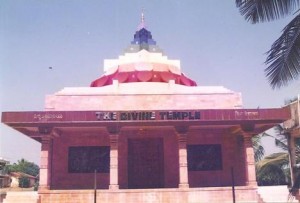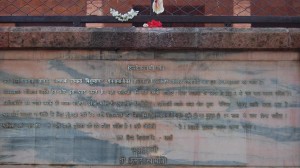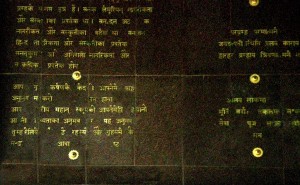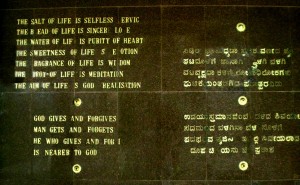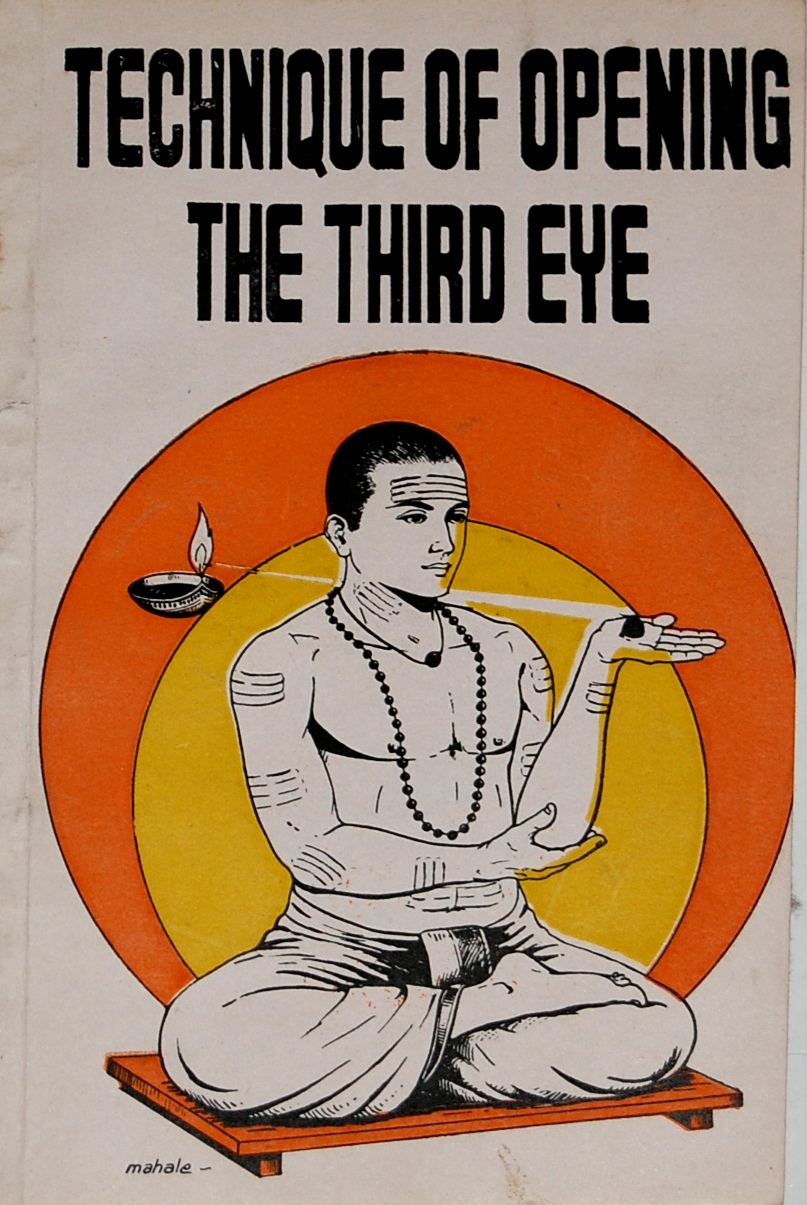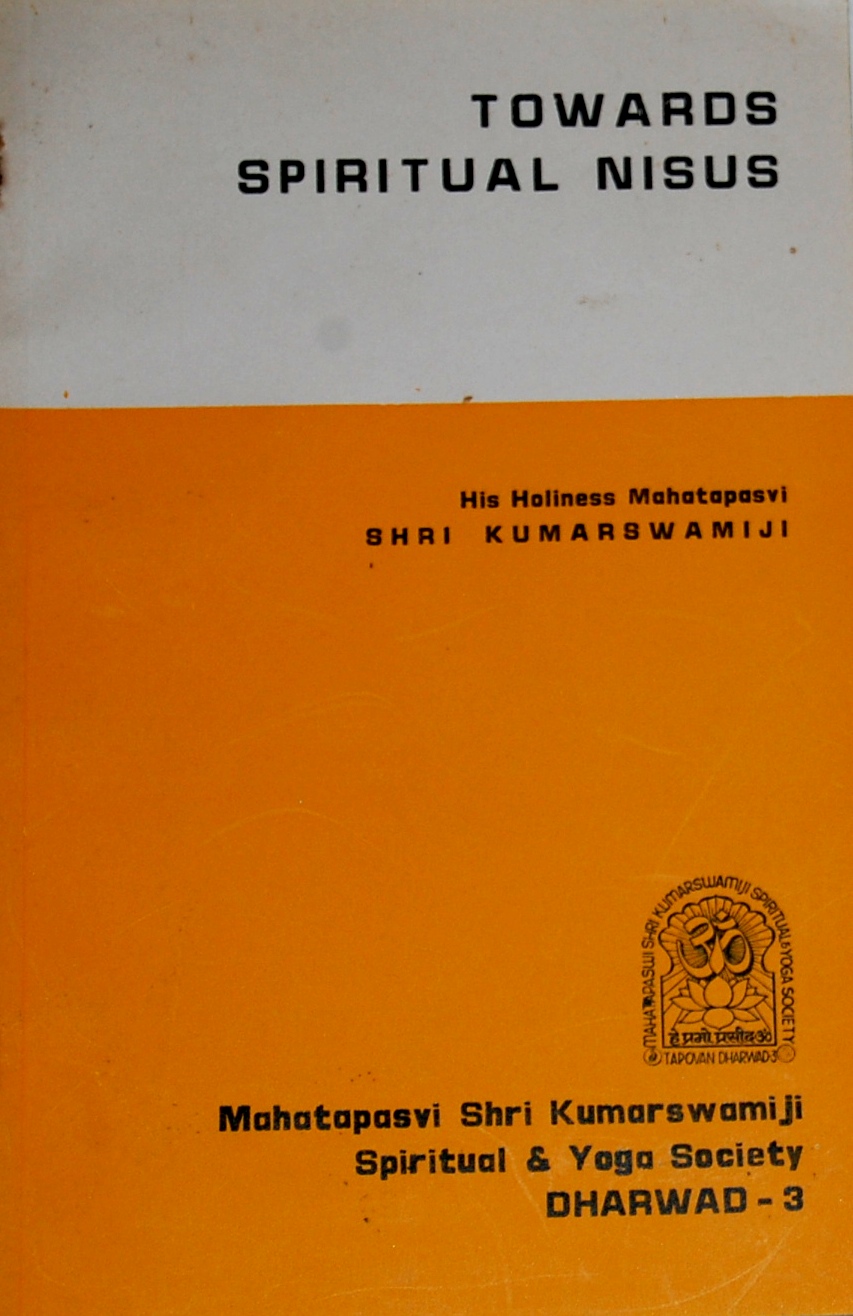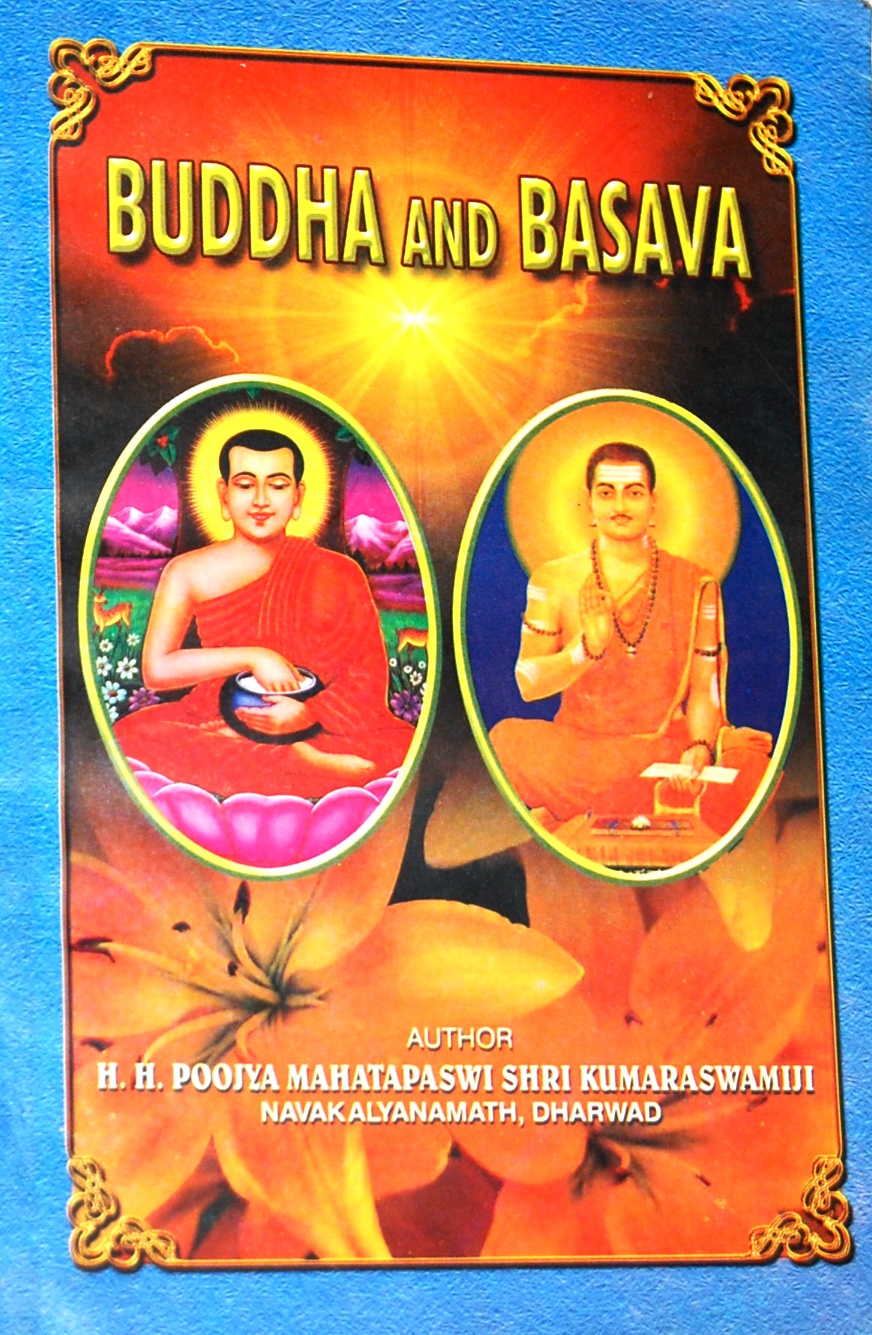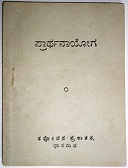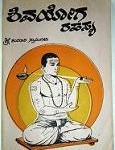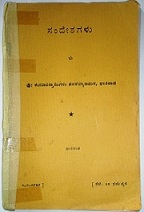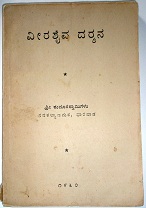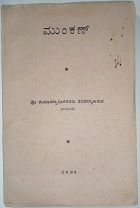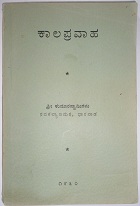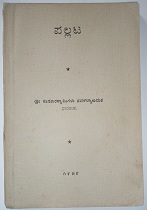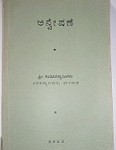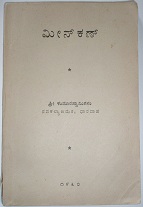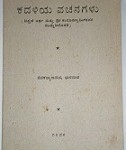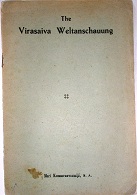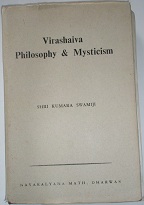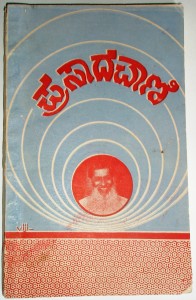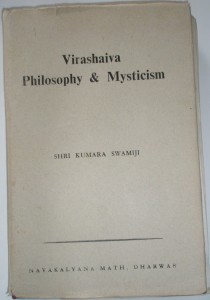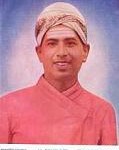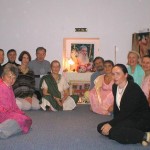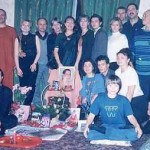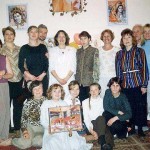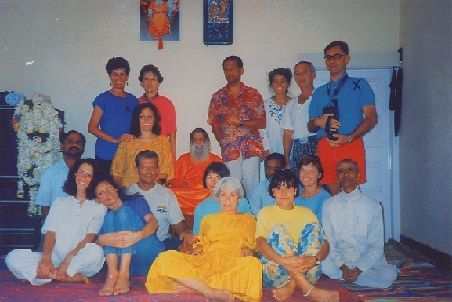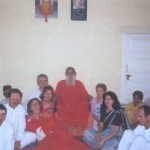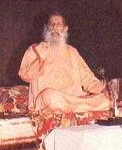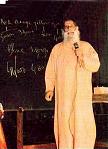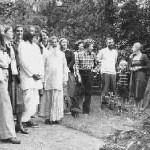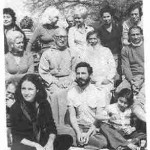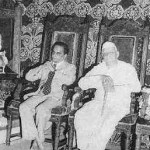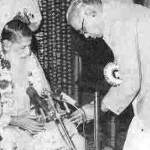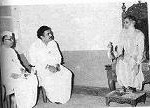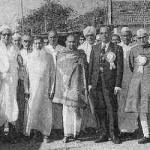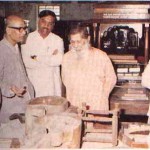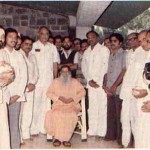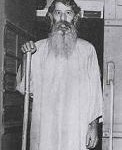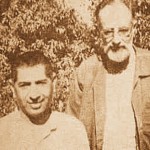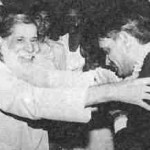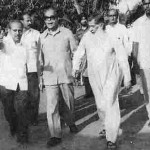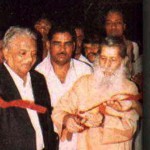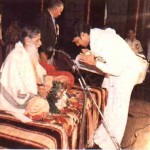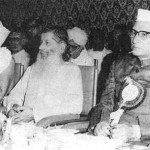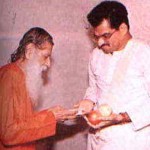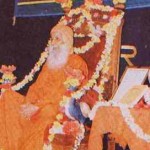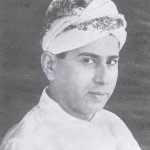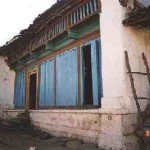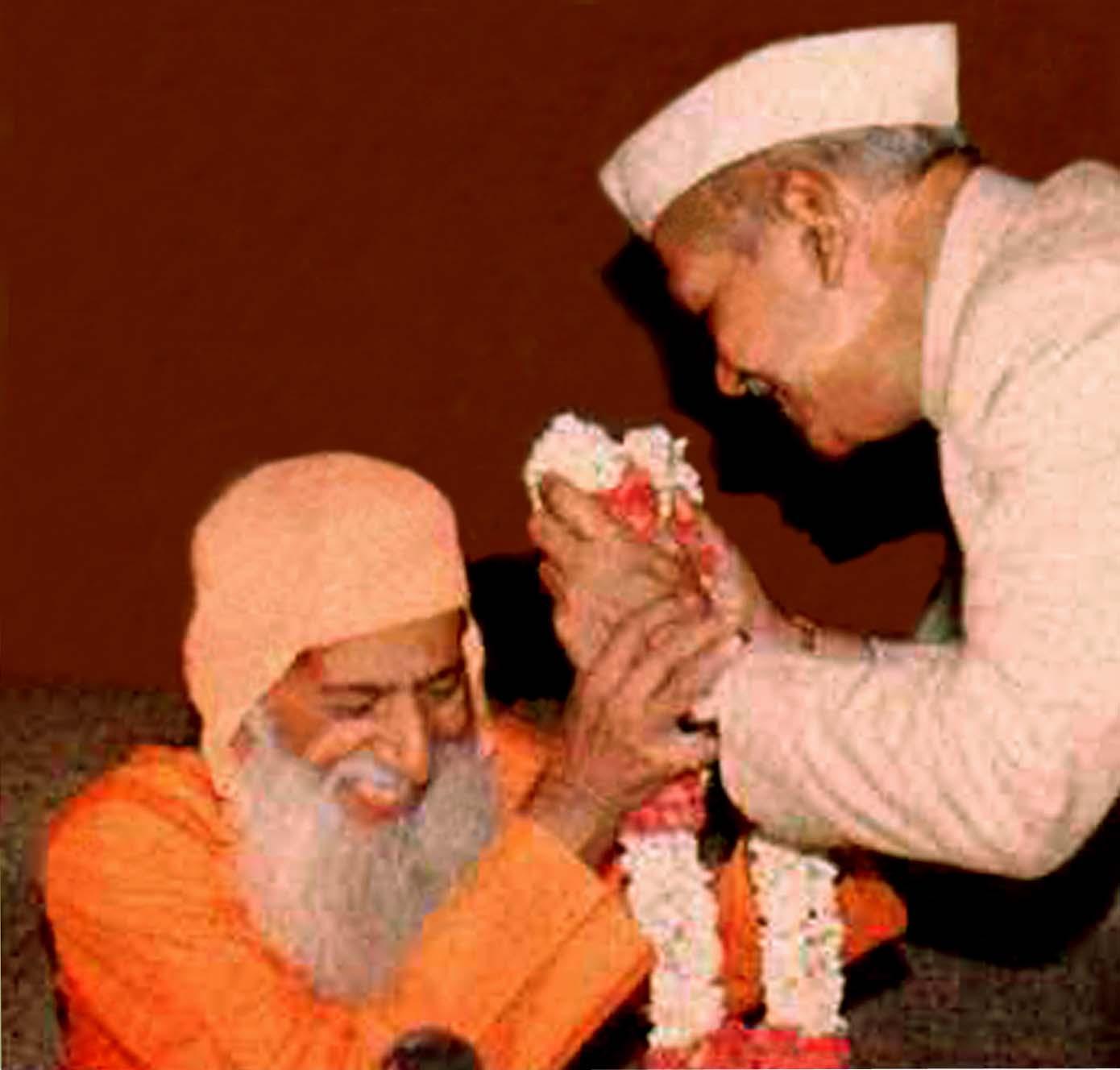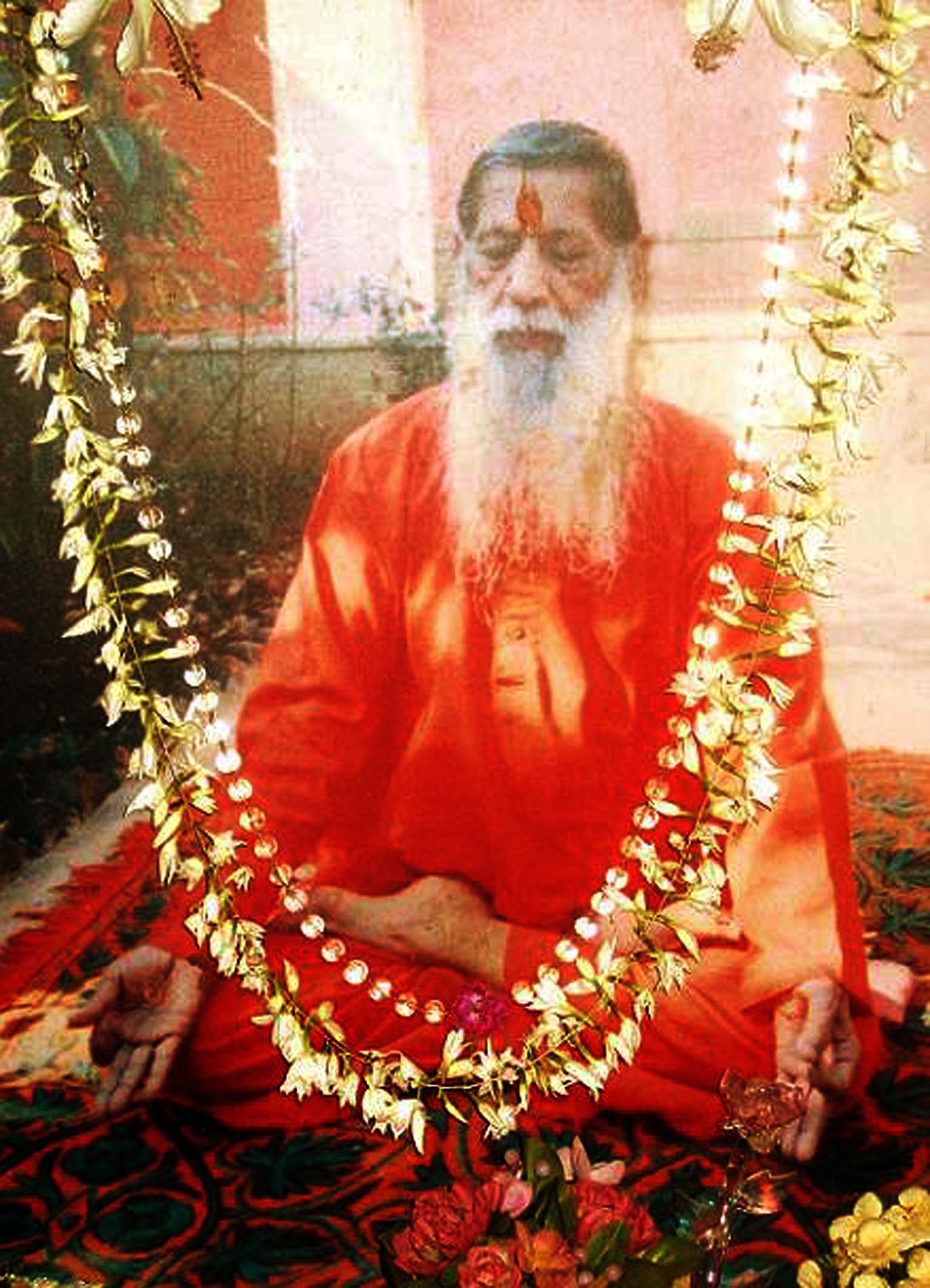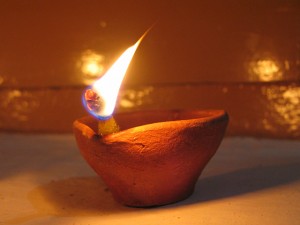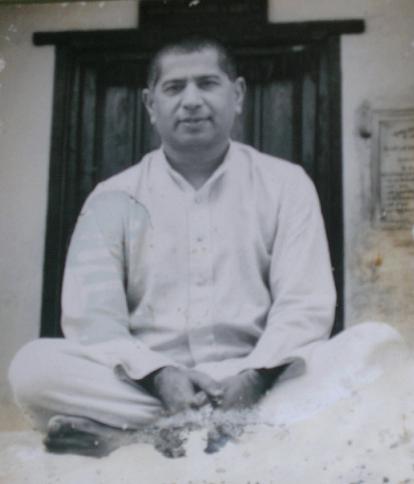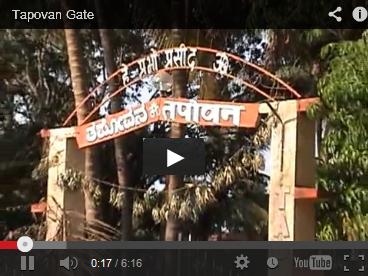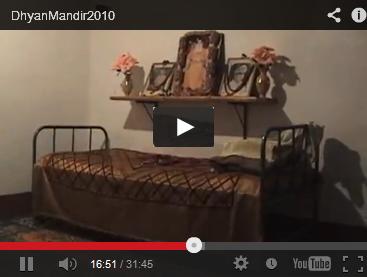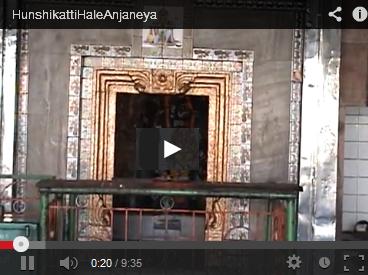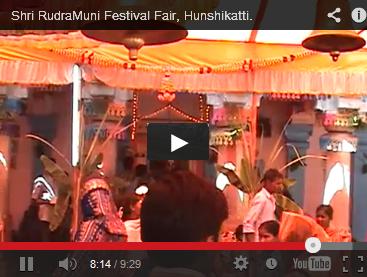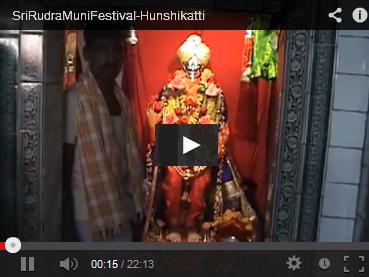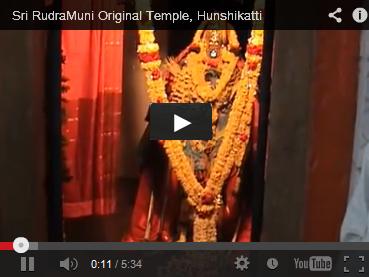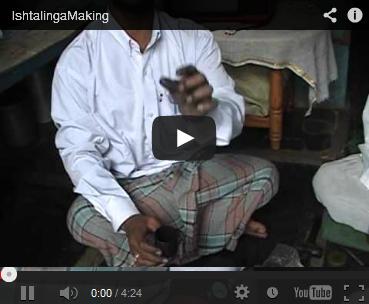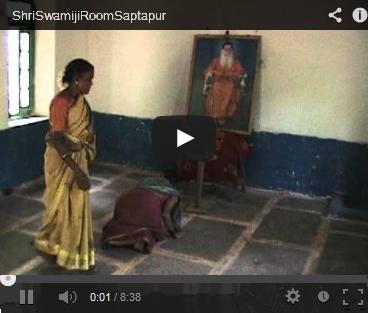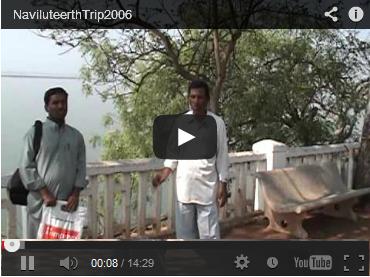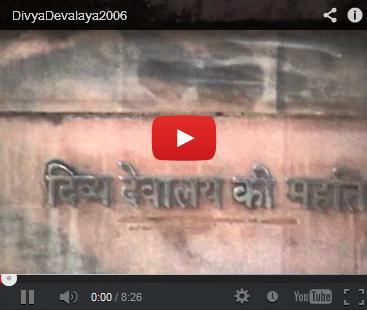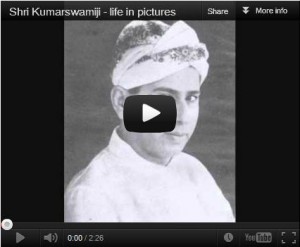Divya Devalaya. (The Divine Temple) at Tapovan, Dharwad, Karnataka, India
In his previous life, His Holiness Mahatapasvi Shri Kumarswamiji was in Gyanganj (Jnanganj) Ashram in the Himalayas. His name was Swami Kshemananda then and his Guru was Paramhansa Swami Nemananda Ji. In Jnanganj Ashram there are two branches – Yoga and Science. Swami Kshemananda Ji was a student in Yoga branch. In this life, as Shri Kumarswamiji, he was in close and continuous contact with Gyanganj Ashram. Gyanganj Ashram has many adepts working for the benefit of mankind and the whole universe. To mention a few names of the adepts of Gyanganj Ashram – Paramhansa Maha Tapa Ji Maharaj, Paramhansa Bhrigu Rama Ji, Paramhansa Nemanand Ji, Paramhansa Abhayanand Ji, Paramhansa Jnana-nanda Ji, Paramhansa Vishuddhananda Ji. There are many Bhairavis (women adepts) too – Uma Bhairavi, Shama Bhairavi, Jnana Bhairavi etc. While Paramhansa MahaTapa Ji Maharaj is head of Jnangang Ashram, Uma Bhairavi is head of medical unit of Jnanganj Ashram.
Paramhansa Vishuddhanand Ji Gandhababa is His Holiness Shri Kumarswamiji’s Guru-bandhu (brother-disciple) from his past life. Towards the end of his this life, Shri Kumarswamiji consulted with his Gurudeva and the adepts from Gyanganj Ashram; for his Sadhana (penance and spiritual practices) in this life was not complete and asked them what should be next course of action therefore. The adepts asked Shri Kumarswamiji to build a temple with his own money and place the spiritual power which he had accumulated in his 50-years long penanace. At the mandate of the adepts from Gyanganj Ashram, Shri Kumarswamiji built Divya Devalaya, the Divine Temple in 1995 at Tapovan, Dharwad. The Divine Temple does not have any image or idol or deity. It has 7 mantras written on the wall which holds Shri Swamiji’s spiritual power. The adepts also told Shri Kumarswamiji that they would send one of their adepts (Siddha-purush) from Jnanganj to reside in the Divine Temple. Accordingly Shri Kumarswamiji’s elder Guru-bandhu, Paramhansa Shri Vishuddhanand Ji Gandhbaba has come to stay in the Divine Temple at Dharwad in his subtle body.
The Divine Temple is maintained in strict accordance with the rules laid by the adepts of Jnanganj ashram.
The Divine Temple opens only once a month, first Monday of every month between 4.00 and 6.00 hrs.
Following Marble plate mentions the ‘THE IMPORTANCE OF THE DIVINE TEMPLE’ in Hindi.
The above text is written in Hindi – reproduced here for easy readability.
दिव्य देवालय की महती
इस दिव्य देवालय में ज्ञानगंज आश्रम के परमहंस विशुद्धानंद गंधबाबा जी का वास्तव्य है | इसीलिए ज्ञानगंज आश्रम के साथ इस दिव्य देवालय का नाता है |
गंधबाबा जी पवित्रता चाहते है | और इसे पसंद करते है | यहाँ पवित्रता की रक्षा करनी चाहिए | दिव्य देवालय के दर्शन के बारे में दो-चार बात कहना उचित है|
दर्शनार्थीयों को स्नान करके ही आना चाहिए | दर्शन महीने में एक बार ही मिलेगा | दर्शनार्थी अपने साथ नोट बुक, पेन्सिल, कैमरा आदि लाना मना है |
यहाँ कोई संप्रदाय या जाती के लिए गुंजाईश नहीं है | सभी मानव मात्र के लिए प्रवेश है | दर्शनार्थी चाहे स्त्री हो या पुरुष हो, १८ साल से ऊपर होना चाहिए |
मासिक धर्म एम सी में रहने वाली महिला को प्रवेश वर्जीत है | यही थोड़ीसी नियमावली है | सब को इसका पालन करना चाहिए |
इस दिव्य देवालय के पुरस्कर्ता
महातपस्वी
श्री कुमारस्वामीजी
English translation of above text is as below
// THE GLORY OF THE DIVINE TEMPLE //
In this Divine Temple resides Paramhansa Vishuddhananda Gandhbabaji of Jnanganj Ashram. Hence the Divine Temple is related to Jnanganj Ashram. Gandhbabaji insists on the sanctity of the Divine Temple, so sanctity and sacredness must be protected. It is therefore appropriate to mention a few things as regards to visiting the Divine Temple. Visitors should take bath before entering the Temple. Visit to the Temple is allowed only once in a month. Visitors are not allowed to take notebook, pen, pencil, camera inside the Temple. There is no restriction for visitors from any specific religion or caste. The Divine Temple is open for all mankind. Visitor, may he be male or female, should be older than 18 years. Ladies during their period are not allowed to go inside the Temple. These are a few rules for visiting the Divine Temple. Everyone must follow these rules.
Proponent of the Divine Temple
His Holiness Mahatapasvi Shri Kumarswamiji
On the both sides walls of the Divine Temple, some prophetic, inspirational divine sayings are written shown as below.
First Marble plate is as below
From top left in clock-wise direction, Sanskrit sayings are translated in English as below
1.
सनक, सनंदन, सनातन और सनत्कुमार ये चार ब्रह्म के मानस पुत्र है |
सनक ल्येएमुरियन नागरिकता और संस्कृति का प्रवर्तक था
सनंदन अटलांटिक नागरिकता और संस्कृति का प्रवर्तक था
सनातन हिन्दू नागरिकता औरसंस्कृति का प्रवर्तक था
सनत्कुमार आगे आने वाली नागरिकता और संस्कृति का प्रवर्तक होगा|
— In English —
Sanak, Sanandan, Sanatan and Sanatkumar are the four spiritual sons of Lord Brahma.
Sanak was the originator of Lemurion culture and civilization.
Sanandan was the originator of Atlantic culture and civilization.
Sanatan was the originator of Hindu culture and civilisatiuon.
Sanatkumar will be the originator of future culture and civilization.
2.
परब्रह्म परमात्मने
जगतउत्पत्ति स्थिति प्रलय काराय
हरी-हर ब्रह्मय त्रिगुणात्मने नमः
— In English —
“|| Parabrahma Paramtamne ||
|| Jagat Utpatti-Sthiti-Pralaya Karay ||
|| Hari Hara Brahmay Trigunatmane Namaha ||”
Oh! Divine beyond all descriptions, Supreme Soul, you are the creator of this world, in you resides this whole world and you are also the Destroyer of this Universe. You are Vishnu, you are Shiva. I bow to you who has threefold qualities of Sattva, Rajas and Tamas.
3.
आलयं लोकम अखीलम
मूर्ति सर्वात संकुलम
निष्काम सेवा ही श्रेष्ठ पूजा
मुक्ति सर्वात मंगलम
— In English —
The Whole World is Temple of God
God Resides in All
Self-less Service is True Worship
Well-wishing of All is Man’s Freeship.
4.
अपने गुरुत्वाकर्षण के केंद्र को अपने से बाहर अनुभव मत करो | यह बड़ा भ्रम होगा| अपने ईश्वरीय महान सत्य को अपनेमें ही पहचानो और इसे अनुभव करो | अपनी दिव्यता का अनुभव करो | यह अनुभव ही तुम्हारे लिए बड़े बड़े रहस्यों और गुह्यों के भांडार खोलकर आवागमन को रोक देगा |
— In English —
Do not search for your centre of gravity in the outside world. This will be a directional illusion. Realize your own Divine Self in your uncovered Self and experience your divinity. This experience will open for you the treasure house of all mysteries of birth and death. And when that root is annihilated, there is no leaf, no fruit on the worldly side.
Second Marble plate is as below
From top left in clock-wise direction, only kannada sayings are translated in English as below
1.
The Salt of Life is Self-less Service
The Bread of Life is Sincere Love
The Water of Life is Purity of Heart
The Sweetness of Life is Devotion
The Fragrance of Life is Wisdom
The Pivot of Life is Meditation
And the Aim of Life is Self-realization.
2. On a hundred fold sheet of paper and hundred thousand or countless petals of the Lotus are written the names of god in hundred of syllables. There is a dazzling light of hundred crores of suns and cooling light of hundred crores of moons. Crossing all these countless petals of Lotus, I have come to thee in your abode.
3. There is a precious Gem, which can not be described and cannot be seen. There is a tall enclosing wall. Inside which there is another tall compund and inside the same there is one more compound. There are many such walls. Going inside and inside, you will see the Plaintain groove and this is the precious Gem.
4.
God gives and forgives;
Man gets and forgets;
He who gives and forgives is therefore nearer to God.
OM SHANTI | OM SHANTI | OM SHANTIHI
————————————————–
Divine Temple – Divine Sayings







